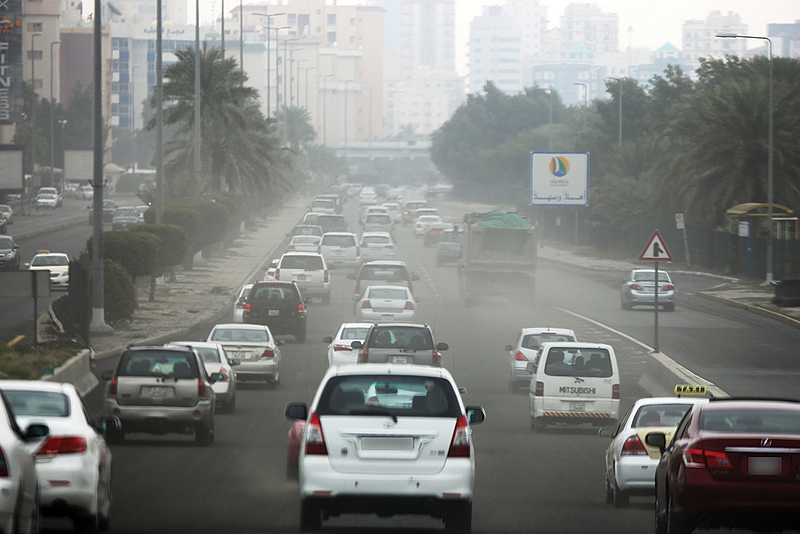Court orders MoI to pay compensation over vehicle impoundment

KUWAIT: Although the traffic law bans heavy trucks, trailers and other heavy vehicles from driving on main and side roads till the Seventh Ring Road during certain times of the day, motorists have noticed many such trucks on the streets during the ban periods. Their woes have been compounded since Arab schools and Kuwait University colleges reopened on Sunday, leading to heavy gridlock on most roads and highways.
Head of the media security department at the interior ministry Lt Col Nasser Buslaib told Kuwait Times that the hours of the truck ban are still the same and haven't changed. "Truck drivers are obliged to respect the ban, otherwise they will be penalized," he said. "Many police patrols on the main roads are monitoring the situation, especially during the rush hours. The ban timings vary according to the roads," he added.
All heavy trucks, tractor trailers and heavy vehicles are not allowed to drive inside Kuwait City, Hawally and Salmiya from 6:30 am to 3:00 pm and again from 5:00 pm to 10:00 pm. This means that no heavy trucks should be on the Third and Fourth Ring Roads and other inner ring roads or any other highways, roads or byways during the abovementioned times.
The truck ban is also on these other main highways: From the intersection of Fahaheel Expressway starting from the Sixth Ring Road (Masayel intersection) all the way to Sulaibiya Road and Sabah Al-Nasser Bridge (Kabd Road). Also Sulaibiya Road between the Fifth and Sixth Ring Roads and the Fifth Ring Road till its intersection with Doha Connection and to the north till it meets the main Jahra Road. Heavy trucks cannot drive on these roads from 6:30 am to 9:00 am and again from 12:30 pm to 3:30 pm.
Meanwhile, the administrative court yesterday annulled interior ministry decision 1293/2017 and clauses 29 and 27 added to article 207 of the traffic code pertaining impounding vehicles for two months for not wearing seatbelts and using mobile phones while driving. The court also ordered compensating KD 500 to the citizen who had filed the case. The citizen's lawyer Khaled Al-Shemmari stressed he was fully confident of winning the case because the resolution was illegal. He also called for more studies of laws before passing them.
Notably, the interior ministry had rescinded the decision to impound vehicles found in violation of traffic regulations pending amendments to traffic laws in Dec 2017, barely a month after enforcing it. The move came after scores of vehicles were impounded, leading to outrage from motorists and lawmakers, lawsuits and even a divorce.
By Nawara Fattahova

